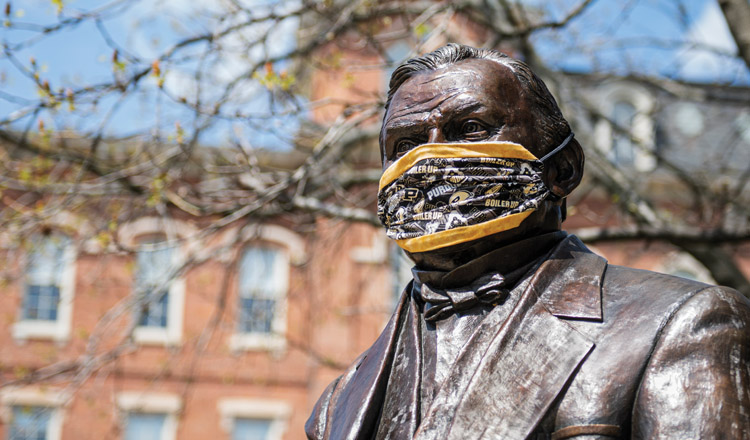
Losses & Gains
The sudden transition to online learning, cancellation of campus events, and closure of academic buildings due to COVID‑19 brought the spring 2020 semester to a standstill.
For members of the Class of 2020, that abrupt ending meant no more late nights cramming with friends. No more Thursday nights at the piano bar. No March Madness. No Grand Prix. No walking across the stage at Elliott Hall of Music to receive a hard-earned diploma.
For students experiencing the sudden loss of community and missing out on milestone celebrations such as commencement, grief can manifest in myriad ways. Grief is not specific to death, says Heather Servaty-Seib, a professor in counseling psychology in the College of Education who researches loss and grief experiences in both death and nondeath situations. As associate dean for student life in the Honors College, Servaty-Seib established an online forum for students to share thoughts and feelings during the COVID-19 pandemic.
“I’ve been quite impressed with their ability to see the situation in its complexity,” Servaty-Seib says. “There are absolutely elements of loss that they recognize and acknowledge, and they have some sense that others may not recognize and acknowledge.”
Psychologists use the term disenfranchised grief to describe situations where individuals experience grief that stems from losses not acknowledged by society. People who graduated 20 years ago who are now in a different life stage may look back on their commencement as just a day or just a diploma, but for graduating students deprived of that rite of passage, it’s not unusual to mourn the loss of public recognition for their achievements.
The challenge, Servaty-Seib says, is that humans tend to dichotomize, viewing experiences or life events as wholly desirable or wholly undesirable. Through sensemaking, people give meaning to a collective experience, such as living through a pandemic. That could include the recognition of gains, such as more time spent with family or an improved sleep schedule. The gains can be there, but they don’t take away from the losses.
“We have to hold the complexity of this time,” Servaty-Seib says. “We have to allow ourselves and others the patience and the kindness to know that it’s going to oscillate back and forth from a sensitivity to the losses to this realization and gratitude for some of the gains.”

